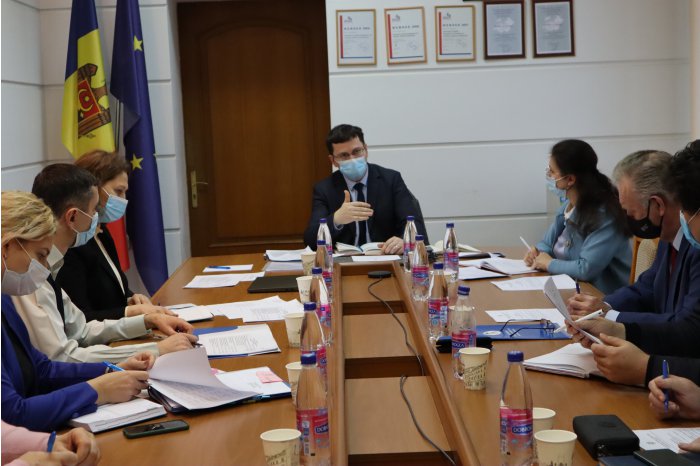National Commission for collective consultation, negotiation resumed work
14:01 | 22.12.2021 Category: Social
Chisinau, Dec. 22 / MOLDPRES /- Members of the National Commission for Collective Consultation and Negotiation (CNCNC) met today after a period in which it did not meet due to the pandemic crisis. The agenda of the meeting included topics related to the impact of the COVID-19 pandemic on the socio-economic and labor field, the effective measures required in this regard, the increase of the minimum wage, other social protection issues.
Minister of Labor and Social Protection Marcel Spatari, who is also the president of CNCNC mentioned the importance of effective involvement and collaboration with the social partners at all stages of decision-making related to defending and promoting the professional and social interests of employees, both individually and and collectively, as well as very close cooperation with the ministries, in order to achieve the proposed objectives.
Representative of the Trade Unions Sergiu Sainciuc, as well as that of the Employers, Leonid Cerescu, welcomed the resumption of the work of the Tripartite Commission. They stressed that the organizations they represent have high expectations from the decisions taken, have proposals and solutions, which must be addressed on this platform.
The meeting examined several studies on the impact of the COVID-19 pandemic on the labor market in the Republic of Moldova and the political responses to the stages of restrictions, gradual reopening and recovery; the phenomenon of the economy and informal employment in the context of the COVID-19 pandemic; the relationship between generations and gender; minimum wage in Moldova.
In general, it was noted that the most vulnerable categories in the pandemic period are women, the elderly and the young; the state's policies in combating and preventing unemployment are insufficient, or, the main thing for the unemployed is access to effective training and counseling, which is not yet in line with expectations; New approaches in fiscal policy and the establishment of the minimum wage are needed, as well as viable solutions for informal, day-to-day employees, who are practically excluded from the social protection system, etc. The members of the Commission pointed out that a more determined, multidimensional attitude is needed if real results, development and modernization are to be achieved.
The participants examined the draft CNCNC Business Plan for the first semester of 2022; agreed on the establishment of the specialized councils of CNCNC, as well as on the resumption of the activity of the commissions for consultations and collective bargaining at branch level, the guaranteed minimum amount of the salary in the real sector and the minimum salary in the economy. Members of the Commission had unanimous views on some issues, but some remained to be re-examined at the January 2022 meeting, when the issues will be debated with a deeper basis of expertise and argumentation.
Marcel Spatari explained that all the decisions and documents of the Commission are available on the official website of the structure, cncnc.gov.md, and urged all interested parties to inform themselves and take action.
The National Commission for Consultations and Collective Bargaining is an autonomous tripartite body (Government, Trade Unions and Employers) of public interest of the social partnership, which is set up to solve labor and socio-economic problems, to develop social partnership at the level of national. The Commission has a consultative role in developing socio-economic strategies and policies, in resolving conflict situations at national level between the social partners.

